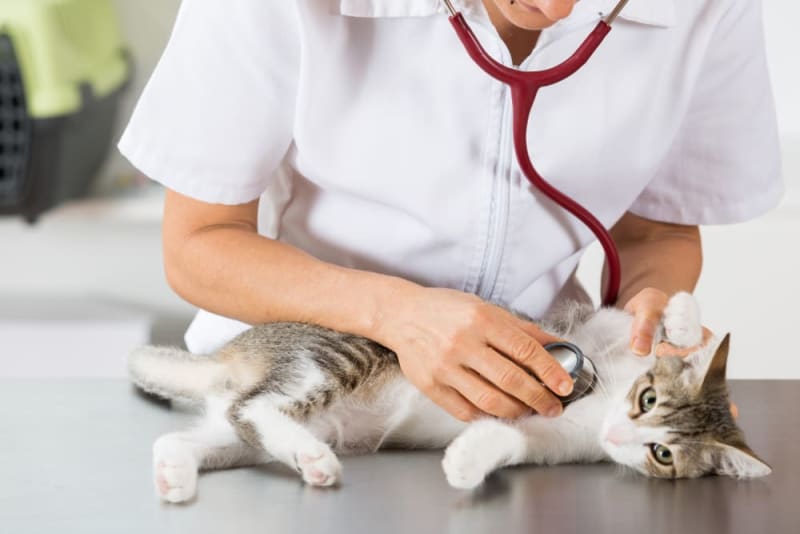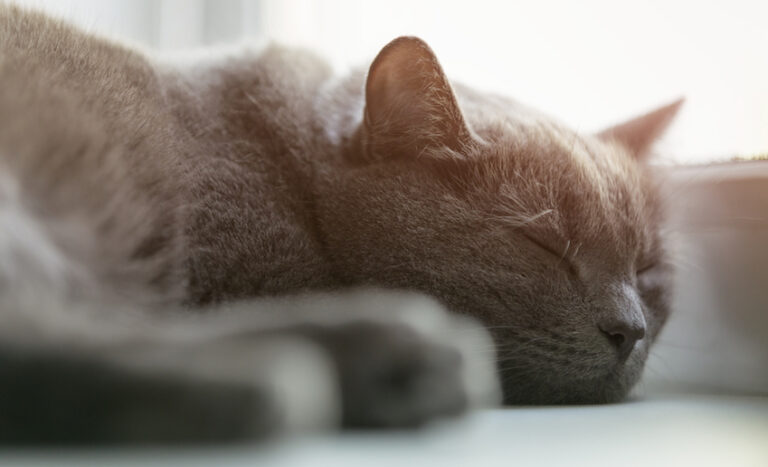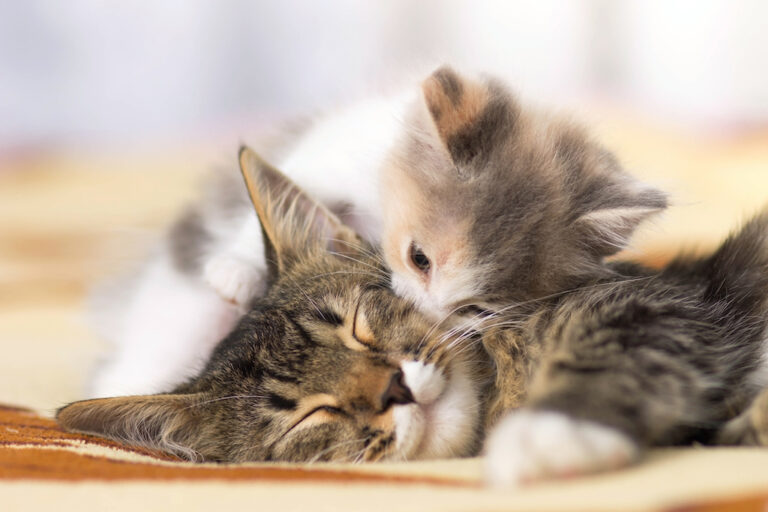Safeguarding your cat’s health
Understanding your cat’s nutritional needs
Cats are obligate carnivores, which means that their bodies are designed to primarily thrive on a diet rich in animal proteins. Protein is an essential component of a cat’s diet, as it provides them with the necessary amino acids for healthy muscle development, tissue repair, and overall growth. Ensuring that your cat’s diet consists of high-quality, animal-based proteins, such as chicken, turkey, or fish, is crucial in meeting their nutritional needs.
In addition to proteins, cats require certain fats in their diet to provide them with the energy they need to stay active and maintain a healthy weight. These fats also act as a carrier for fat-soluble vitamins, aiding in their absorption and utilization by the body. When selecting cat food, look for options that contain a balanced ratio of omega-3 and omega-6 fatty acids, which are known to promote a healthy skin and coat. Remember, it is important to consult with your veterinarian to determine the specific nutritional needs of your cat, as factors such as age, activity level, and underlying health conditions can influence their dietary requirements.
Creating a balanced and nutritious diet for your cat
A well-balanced and nutritious diet plays a crucial role in maintaining your cat’s overall health and well-being. When it comes to their diet, cats are obligate carnivores, which means they require a high proportion of animal-based protein in their meals. This protein is essential for maintaining their muscle mass, supporting their immune system, and keeping their skin and coat healthy.
In addition to protein, cats also need a good source of fats and carbohydrates. Fats provide them with essential fatty acids that aid in the absorption of fat-soluble vitamins and help keep their skin moisturized. Carbohydrates, while not as essential, can still provide a source of energy, fiber, and some essential nutrients. However, it’s important to remember that cats have a limited ability to digest carbohydrates, so it’s best to choose quality sources such as whole grains or vegetables.
To ensure a well-rounded diet, it is recommended to feed your cat a combination of both wet and dry food. Wet food supplies the necessary hydration for your cat, while dry food helps maintain dental health and provides essential nutrients. When selecting cat food, look for products that are specifically formulated for their life stage (kitten, adult, senior), have high-quality animal-based protein as the main ingredient, and are free from artificial additives and preservatives. Finally, remember to consult with your veterinarian to determine the appropriate portion sizes and feeding schedule based on your cat’s individual needs.
Regular veterinary check-ups: why they are essential
Regular veterinary check-ups are crucial for maintaining the overall health and well-being of your beloved feline companion. These check-ups involve a thorough examination by a professional veterinarian to ensure that your cat is in optimal condition. During these visits, the vet will assess your cat’s weight, check their vital signs, and examine their eyes, ears, and mouth. They will also listen to your cat’s heart and lungs and check for any abnormalities. These routine check-ups are essential as they allow the vet to detect any underlying health issues or potential problems early on, before they become more serious.
In addition to a physical examination, regular veterinary check-ups also include necessary vaccinations and preventive treatments. Vaccines play a crucial role in protecting your cat against various infectious diseases. Your vet can provide you with a vaccination schedule tailored to your cat’s specific needs and lifestyle. Preventive treatments, such as flea and tick control, are also administered during these visits to keep your cat free from external parasites that can cause discomfort and transmit diseases. By attending regular check-ups, you can ensure that your cat receives the necessary vaccinations and preventive treatments to stay healthy and protected.
Preventing common feline diseases through vaccinations
Vaccinations play a crucial role in preventing common diseases in our feline companions. By immunizing our cats, we can provide them with the necessary protection against harmful viruses and bacteria that could potentially endanger their health and well-being. The most common vaccinations for cats include those for rabies, feline herpesvirus, calicivirus, and panleukopenia.
Rabies is a viral disease that affects the central nervous system of mammals, including cats. Vaccinating your cat against rabies is not only essential for protecting their health but also for safeguarding the health of other animals and humans. Feline herpesvirus and calicivirus are respiratory diseases that can cause severe symptoms like sneezing, coughing, nasal discharge, and fever. These viruses are highly contagious and can spread rapidly among cats, especially in multi-cat households or shelters. Panleukopenia, also known as feline distemper, is a highly contagious and often fatal disease that affects the gastrointestinal system, causing symptoms such as vomiting, diarrhea, and dehydration. Vaccination is the most effective way to prevent the spread of these diseases and keep our furry friends safe and healthy.
Maintaining a clean and hygienic living environment for your cat
Cats are naturally clean animals that spend a significant amount of time grooming themselves. However, as their owners, it is our responsibility to provide a clean and hygienic living environment for them to thrive in. Regular cleaning of their litter box is paramount in maintaining their hygiene. Ensure that you scoop out any waste daily, and completely change the litter at least once a week to eliminate any odors and prevent the growth of bacteria. Additionally, using a litter that has antimicrobial properties can further aid in keeping the litter box clean and fresh.
In addition to the litter box, it is important to regularly clean other areas that your cat frequents. Vacuuming the floors and furniture, especially in areas where your cat likes to lounge, will help remove any fur, dander, and dust that can accumulate. It is also recommended to use pet-friendly cleaning products to ensure that no harmful chemicals are left behind. Providing your cat with clean bedding, be it a cat bed or a cozy blanket, is also essential as it gives them a comfortable and clean space to relax in. Remember to wash their bedding regularly to maintain their hygiene and prevent any potential allergic reactions.
Essential grooming practices to keep your cat healthy
Grooming is an essential part of keeping your cat healthy and happy. Regular brushing removes dirt, debris, and loose fur from your cat’s coat, preventing matting and reducing the risk of skin irritations. It also helps to distribute the natural oils in the fur, keeping it shiny and reducing the occurrence of hairballs. Additionally, grooming allows you to check for any abnormalities such as lumps, ticks, or fleas, giving you the opportunity to address them before they become more serious issues.
In addition to brushing, it is important to keep your cat’s nails trimmed. Long nails can cause discomfort and pain for your feline companion and may lead to accidents or injuries. To protect yourself and your furniture from scratches, regular nail trimming is necessary. However, it is important to be cautious and use proper techniques while trimming the nails to prevent hurting your cat. If you are unsure about how to do this, consult a veterinarian or a professional groomer for guidance.
The importance of regular exercise and mental stimulation for your cat
Regular exercise and mental stimulation are crucial for the overall well-being of your feline companion. Cats, like any other living beings, have physical and mental needs that must be met in order to maintain a healthy lifestyle. Engaging your cat in physical activities not only helps prevent obesity, but it also promotes cardiovascular health and helps them develop strong muscles and bones. Regular exercise can be as simple as engaging in play sessions with interactive toys or providing them with a scratching post to climb and stretch. By encouraging exercise, you are ensuring that your beloved pet maintains a healthy weight and reduces the risk of developing various health issues related to inactivity.
In addition to physical exercise, mental stimulation is equally important for your cat’s well-being. Like humans, cats also require mental stimulation to keep their minds sharp and active. Providing them with engaging toys, puzzle feeders, and interactive playtime can help keep their minds stimulated. This not only prevents boredom but also reduces the risk of behavioral issues such as excessive meowing, aggression, or destructive behaviors. Mental stimulation can be as simple as hiding treats around the house for them to find or rotating their toys to keep them interested. By incorporating mental stimulation into your cat’s daily routine, you are ensuring that they lead a mentally fulfilling and happy life.
Identifying and managing common cat allergies and sensitivities
Cats, like humans, can develop allergies and sensitivities to certain substances. Identifying these allergies and sensitivities is crucial in order to effectively manage and provide the necessary care for our feline friends. One common sign of an allergic reaction in cats is excessive scratching or licking of the skin, accompanied by redness or swelling. This can be caused by a variety of allergens such as certain food ingredients, pollen, dust mites, or even flea bites. In order to determine the specific allergen affecting your cat, it is recommended to visit a veterinarian who can perform tests such as blood tests or skin allergy tests.
Once the allergen has been identified, managing a cat’s allergies and sensitivities involves minimizing exposure to the allergen and providing appropriate treatment. For food allergies, this may mean switching to a special hypoallergenic diet or eliminating certain ingredients from their food. Environmental allergies may require regular cleaning and vacuuming to reduce allergens in the cat’s living environment. In some cases, medication or immunotherapy may be prescribed by the veterinarian to alleviate symptoms and build tolerance to the allergen over time. However, it is important to always consult with a veterinarian before making any changes or starting any treatments for your cat’s allergies to ensure the best possible care and management.
What are some common signs of cat allergies?
Common signs of cat allergies include sneezing, coughing, wheezing, watery eyes, itching, skin rashes, and digestive issues.
How can I identify if my cat has a food allergy?
Food allergies in cats can be identified by observing symptoms such as vomiting, diarrhea, itchy skin, hair loss, and ear infections. Consult with a veterinarian for a proper diagnosis.
Can cat allergies be treated?
While there is no cure for cat allergies, symptoms can be managed through various treatments including antihistamines, immunotherapy, and lifestyle changes.
What is the best diet for a cat with allergies?
A hypoallergenic diet, which eliminates common allergens such as chicken, beef, and grains, is often recommended for cats with allergies. Consult with a veterinarian to determine the best diet for your cat’s specific needs.
How often should I take my cat to the vet for check-ups?
It is recommended to take your cat to the vet for check-ups at least once a year. Senior cats or those with pre-existing conditions may require more frequent visits.
Why are regular veterinary check-ups essential for my cat?
Regular veterinary check-ups are essential to monitor your cat’s overall health, detect any potential issues early on, update vaccinations, and receive professional advice on nutrition and preventive care.
Which vaccinations are important for my cat?
Common vaccinations for cats include those for rabies, feline distemper, and feline leukemia. Consult with a veterinarian to determine the appropriate vaccinations for your cat based on their lifestyle and potential exposure.
How can I maintain a clean and hygienic living environment for my cat?
To maintain a clean living environment for your cat, regularly clean their litter box, vacuum and dust your home, wash bedding and toys, and keep food and water dishes clean. Regularly disinfecting surfaces can also help prevent the spread of allergens.
How often should I groom my cat?
The frequency of grooming depends on your cat’s specific needs, but most cats benefit from regular brushing to remove loose hair and prevent matting. Additionally, cats with long hair may require more frequent grooming sessions.
Why is exercise important for my cat’s health?
Regular exercise is important for maintaining a healthy weight, promoting good cardiovascular health, and preventing behavior problems in cats. It also provides mental stimulation and helps prevent obesity-related diseases.
What are some common cat allergens?
Common cat allergens include cat dander, saliva, and urine. These allergens can trigger allergic reactions in sensitive individuals.
How can I manage my cat’s allergies at home?
Managing your cat’s allergies at home includes keeping their living environment clean, using hypoallergenic products, providing a balanced diet, and avoiding allergens to the best of your ability. Consult with a veterinarian for personalized advice.







